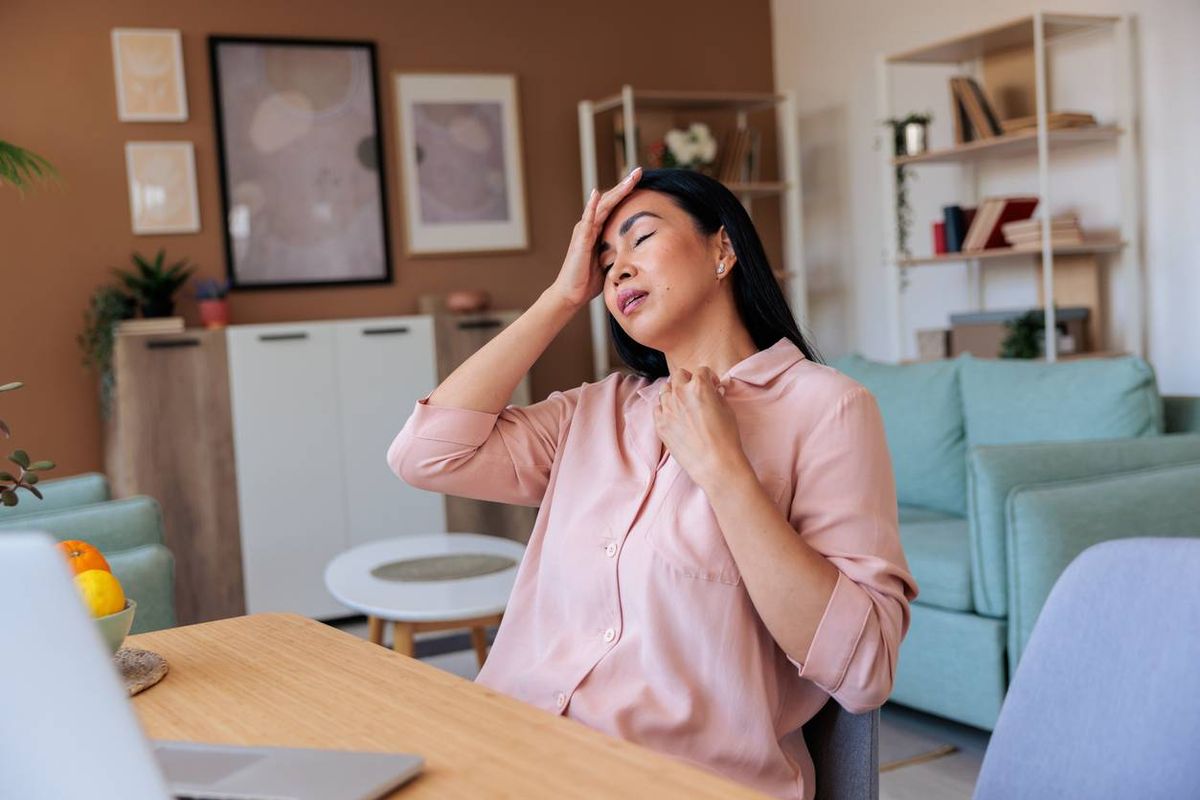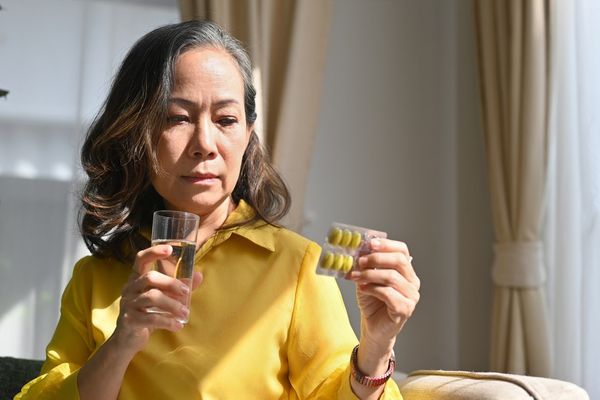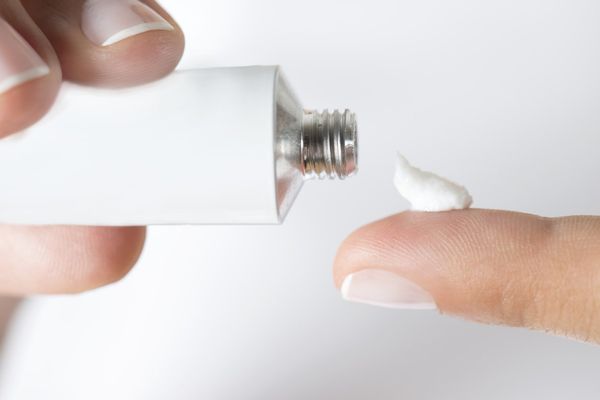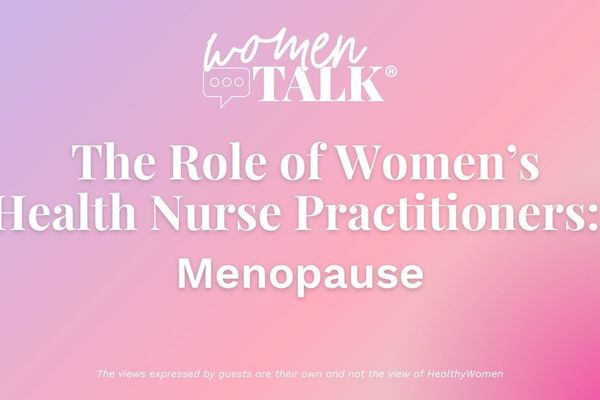During perimenopause and menopause, hot flashes can happen anytime day or night. Heat rises up through your body. Your face, neck and chest might become red, and you may start sweating. And it’s more than just a pain in the neck – hot flashes, especially when they’re severe, can be really disruptive. In fact, about 3 in 10 women with hot flashes have them so badly they need treatment.
Hot flashes — one of the two vasomotor symptoms (VMS) of menopause — happen when a hormone in your body called estrogen begins to drop. Estrogen affects the part of your brain that controls body temperature. Up to 8 out of 10 pre- and postmenopausal women experience hot flashes, and they can last between seven and 10 years — and Black and Hispanic women often experience hot flashes for even longer.
The most effective treatment for hot flashes is hormone therapy (HT). But not all women can take hormonal medication for a variety of reasons. “This includes women who've had estrogen-sensitive breast or uterine cancer, heart attack, stroke, blood clots or pulmonary embolisms,” said JoAnn Pinkerton, M.D., medical director of Midlife Health Center and member of HealthyWomen’s Women’s Health Advisory Council. Other women may choose not to take HT for personal reasons.
Now, these women have a new option. In October, the U.S. Food and Drug Administration (FDA) approved a new hormone-free drug called elinzanetant to help treat moderate-to-severe hot flashes. It joins fezolinetant, which was approved for the same indication in 2023. With more nonhormonal treatments available than ever before, it can be hard to know which one is right for you.
Here’s what you need to know about hot flash treatments.
Nonhormonal hot flash medications
Two new hormone-free medications target the temperature control center of the brain to reduce hot flashes. The medications stop hot flashes by counteracting the drop in estrogen by binding to and blocking the parts of your brain that allow your temperature to go up when your hormone level drops.
Elinzanetant (brand name: Lynkuet): In clinical studies, elinzanetant reduced hot flashes by 73% and also helped women sleep better.
Common side effects of elinzanetant:
- Drowsiness
- Headache
- Abdominal pain
Fezolinetant (brand name: Veozah): Has been shown to improve mood, sleep and overall quality of life.
Common side effects of fezolinetant include:
- Stomach pain
- Insomnia
- Elevated liver enzymes
It’s always important to talk to your HCP about whether any prescription medication is right for you. Elinzanetant and fezolinetant can interfere with certain medications, so it’s important to tell them what else you’re taking.
Both of these non-hormonal hot flash treatments are processed through your liver, so you need to get your liver checked every three months if you take them. And for fezolinetant, you need to have a baseline liver level recorded before you start. As with any medication, certain people should not take these drugs.Elinzanetant and fezolinetant can also be expensive and may not be covered by insurance, but you may be able to find coupons and savings opportunities on their websites or by asking your pharmacist.
Off-label medications
Some medications not specifically meant for hot flashes have been shown to help reduce VMS symptoms. Pinkerton said that more research is needed to understand why, but these medications seem to have an effect on the temperature regulator in your brain.
Antidepressants including SSRIs and SNRIs reduce hot flashes in up to 64% of women. These can be a good choice for women who struggle with depression or anxiety and have VMS symptoms.
Side effects of SSRIs and SNRIs can include:
- Nausea
- Gastrointestinal issues
- Weight changes
- Headache
- Sexual dysfunction
Gabapentin (brand names: Horizant, Gralise and Neurontin) is a nerve-blocker that can help ease the severity of hot flashes by up to 51%. Because it can make you drowsy, it’s often prescribed for women with hot flashes who also have difficulty sleeping and because it’s a nerve blocker, it can also be an option for women who have neuropathic pain.
Side effects of gabapentin can include:
- Dizziness
- Coordination difficulties
- Weight gain
- Swelling
- Gastrointestinal issues.
Oxybutynin (brand name: Ditropan) is a medication prescribed for overactive bladder that can reduce hot flashes by up to 86%. This may be a good choice for women who have both urinary issues and hot flashes.
Side effects of oxybutynin include:
- Dry eyes
- Dry mouth
- Urine retention
- Dizziness
- Drowsiness
- Constipation
- Nausea
Supplements for hot flashes
Over-the-counter supplements for hot flashes contain vitamins, minerals, amino acids and other ingredients that can help reduce symptoms. Pinkerton said these options may help women with mild-to-moderate symptoms, but they won’t help with severe symptoms. She also warned that they are not FDA-approved, which means they aren’t regulated, may not be proven to help, and may contain contaminants.
EstroG-100 is a supplement rooted in Asian folk medicine. In one study, EstroG-100 reduced hot flashes after 12 weeks of use. It may also help with other menopause symptoms, including sleep issues.
S-equol is a soy-based product that may benefit some, but not all, menopausal women. More studies are needed to find out how effective it is.
Black cohosh is an herbal supplement native to North America that is thought to reduce symptoms of menopause. There is limited evidence to support its use. It can cause mild side effects and interact with certain drugs. It’s important to be extremely cautious if using this herbal remedy.
Red clover is an herb from southeast Europe that has been traditionally used to treat upper- respiratory tract infections. There is some evidence that red clover can help menopausal symptoms, but more clinical studies are needed.
Lifestyle changes for hot flashes
Making certain lifestyle changes can help with the severity and number of hot flashes you have. Pinkerton suggested moderate exercise, getting at least seven hours of sleep each night, and eating a Mediterranean diet high in protein, fruits and vegetables. You should also quit smoking and limit alcohol and caffeine.
An individualized approach based on your symptoms is the best way to address hot flashes.
If your symptoms are mild, Pinkerton said over-the-counter options could work. But if your hot flashes are disrupting your work, sleep or relationships, it’s a good idea to schedule an appointment with your HCP. “Make sure that someone's listening to you, and that they're offering evidence-based therapies,” she said.
- Yes, There Is Sex After Menopause ›
- Can Menopause Cause Brain Fog? ›
- Signs of Early Menopause ›
- 7 Menopause Tips from the Pros ›
- It's Not Just a Hot Flash. It's VMS. ›







